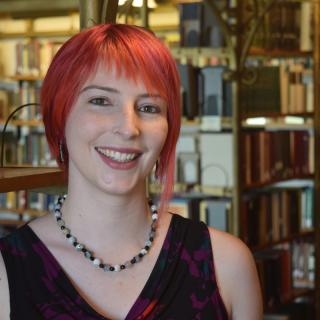Events & Calendars CANCELLED: CHI Salon: A Symbiotic Future for Machine Learning and the Humanities
Skip to Main ContentComputational methods can help the humanities by making massive cultural heritage collections more explorable and analyzable. Machine learning and statistical methods provide an opportunity to view collections from alien, defamiliarized perspectives that can call into question the boundaries between established categories. But the converse is also true: the humanities have much to offer machine learning. The use of computational methods within humanities scholarship often tests and expands the affordances of these methods. The complexities and idiosyncrasies of humanities collections can improve our understanding of what models learn and how we might direct what they learn.
In this talk, Laure Thompson will discuss how machine learning and the humanities help each other. She will demonstrate how convolutional neural networks can be used as an exploratory tool to ask "What is Dada?" Then, she will show how science fiction novels highlight the way topic models tend to learn author- and series-oriented discourses, and how they have inspired a method for directing these models towards more cross-cutting themes. Finally, Thompson will briefly describe how these two lines of work are being combined to enable the study of magical gems, an art historic category of engraved gemstones from the Greco-Roman world.
Laure Thompson is an assistant professor in the College of Information & Computer Sciences at UMass Amherst. This talk will be introduced and facilitated by Lee Spector, visiting professor of computer science at Amherst College.
Please note this event will be recorded for use by students in the computer science course "Machine Learning."
Co-sponsored and funded by the Artificial Intelligence in the Liberal Arts initiative
This event is open to the public over Zoom. Pre-registration is required.
Additional Info
Contact Info
 @amherst.edu
@amherst.edu
